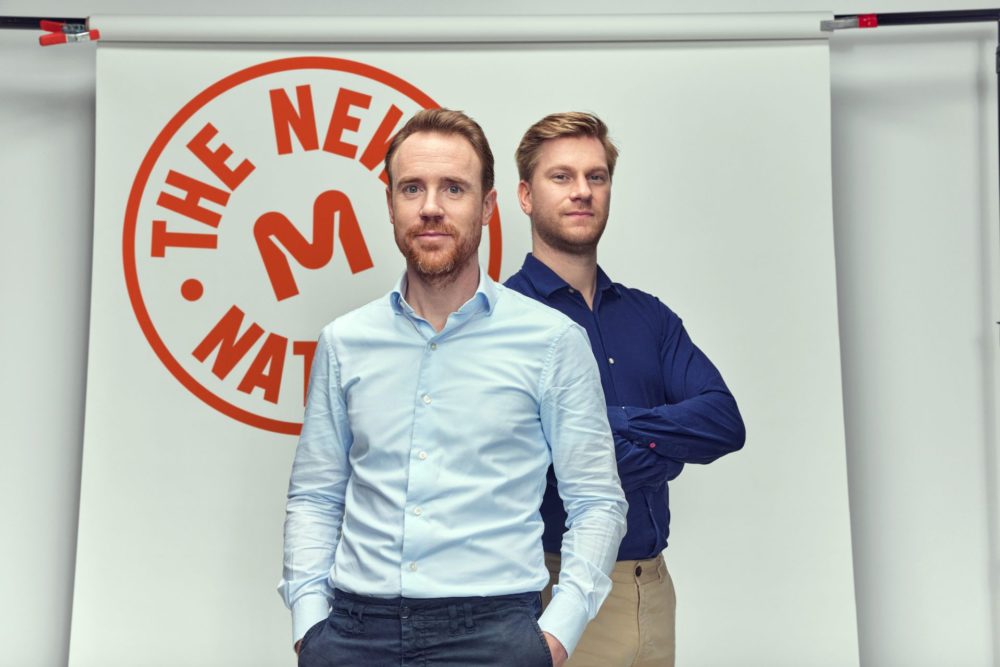Netherlands foodtech startup Meatable plans to expand its portfolio of cell-cultured pork and beef products following the close of its $47 million Series A round, co-founder and chief technology officer Daan Luining told AFN.
New investors joining the round, which brings Meatable’s total funding to date to $60 million, included DSM Venturing — the corporate VC arm of Dutch chemicals giant DSM — as well as US firm Section 32, which was founded by former Google Ventures CEO Bill Maris.
Jeffrey Lieden, the executive chairman of US biopharma company Vertex Pharmaceuticals, and former US National Cancer Institute and Bill & Melinda Gates Foundation director Rick Klausner also came on board as first-time investors.
Existing backers including Agronomics from the UK, Germany’s BlueYard Capital, New York-based Humboldt, and Transferwise co-founder Taavet Hinrikus re-upped in this round.
Plenty of pluri-potential
Meatable is culturing meat in the lab using a proprietary technique that can turn pluripotent stem cells — the tabulæ rasæ of animal biology — into any desired cell type. The technology allows the Delft-based startup to grow these different types of cells — taken, say, from the umbilical cord of a newborn calf or piglet — in proportions and arrangements similar to what you’d expect to find in a cut of meat from a slaughtered animal.
“Our process is inspired by the natural process of raising an animal,” Luining said. “It enables us to take a stem cell from an animal, and differentiate into fat cells and muscle cells — the two main components of traditional meat — in a very efficient manner. This makes for delicious, very tasty, real meat.”
Highlighting what he believes is Meatable’s unique selling point compared to the growing number of cultured protein competitors, Luining explained that adult animal muscle and fat stem cells require vastly different, “nearly opposite” environments in which to thrive.
As a result, other cultured meat startups are taking more time-consuming approaches that require the end product to be ‘constructed’ from separately grown cells.
“With pluripotent stem cells, muscle and fat cultures start from the same type of cell, so they can be grown side-by-side. There’s no mixing required afterwards,” Luining said.
“The two ingredients can be grown together as they naturally do inside an animal. This is a gamechanger and will allow us to create a controlled, large-scale process on both ends.”
Meatable’s ultimate objective is to be able to produce meat fit for human consumption within a matter of weeks, as opposed to the years taken to grow a live animal.
Hitting cost parity
Last year, the Meatable team demonstrated the efficacy of its tech by growing pork using pluripotent stem cells taken from a pig.
“For the first time in history, we have successfully differentiated pluripotent cells into fat and muscle with unprecedented speed and efficiency. Right now we have proven that we can grow these cells separately and we have promising results as we are working towards a process that allows us to grow fat and muscle together,” Luining claimed.
He wouldn’t be drawn on the current costs Meatable incurs in growing meat this way, indicating that the startup’s aim is to reach cost parity with slaughter meat by the time its products are ready to hit the shelves.
“We’re aiming to have our products widely available in stores by 2025. It’s too early to tell what the debut product will be or what it will cost,” he said.
‘All rich countries should move to 100% synthetic beef,’ says Bill Gates – read more here
“One could argue that at the moment we don’t really pay the true cost of meat in general. Looking at climate change, [it may be] that the true cost of meat needs to go up. To make an impact climate-wise, we need to hit cost parity. With the expectancy of traditional meat prices going up, we might hit price parity with our cultivated meat even sooner.”
He added that Meatable sees it as “essential” that its products are available and affordable to the broadest possible swathe of consumers.
“So it will, at the very least, be the same price range as traditional meat. It’s our mission to make meat production more sustainable and efficient, but we’ll only have a positive impact on climate change if people can actually afford to buy our product.”
Any cell-based species
Meatable will use the Series A funds to advance small-scale production at its current headquarters, the DSM-founded Biotech Campus Delft, and to diversify its nascent product portfolio – adding new pork possibilities, as well as moving further into beef.
While the startup is focussing on these two meats initially “as they have a great impact on our climate and are the most eaten,” its technology is “adaptable to any cell-based species,” Luining said.
“With this new funding we believe we are well on our way to bringing our first products to market,” he continued. “And as we are a mission-driven company, we need more funding to develop, accelerate, and bring to life sustainable, healthy, and environmentally sound technologies that can improve the human condition.”
Comment? News tip? Story idea? Email me at [email protected] or find me on LinkedIn and Twitter





